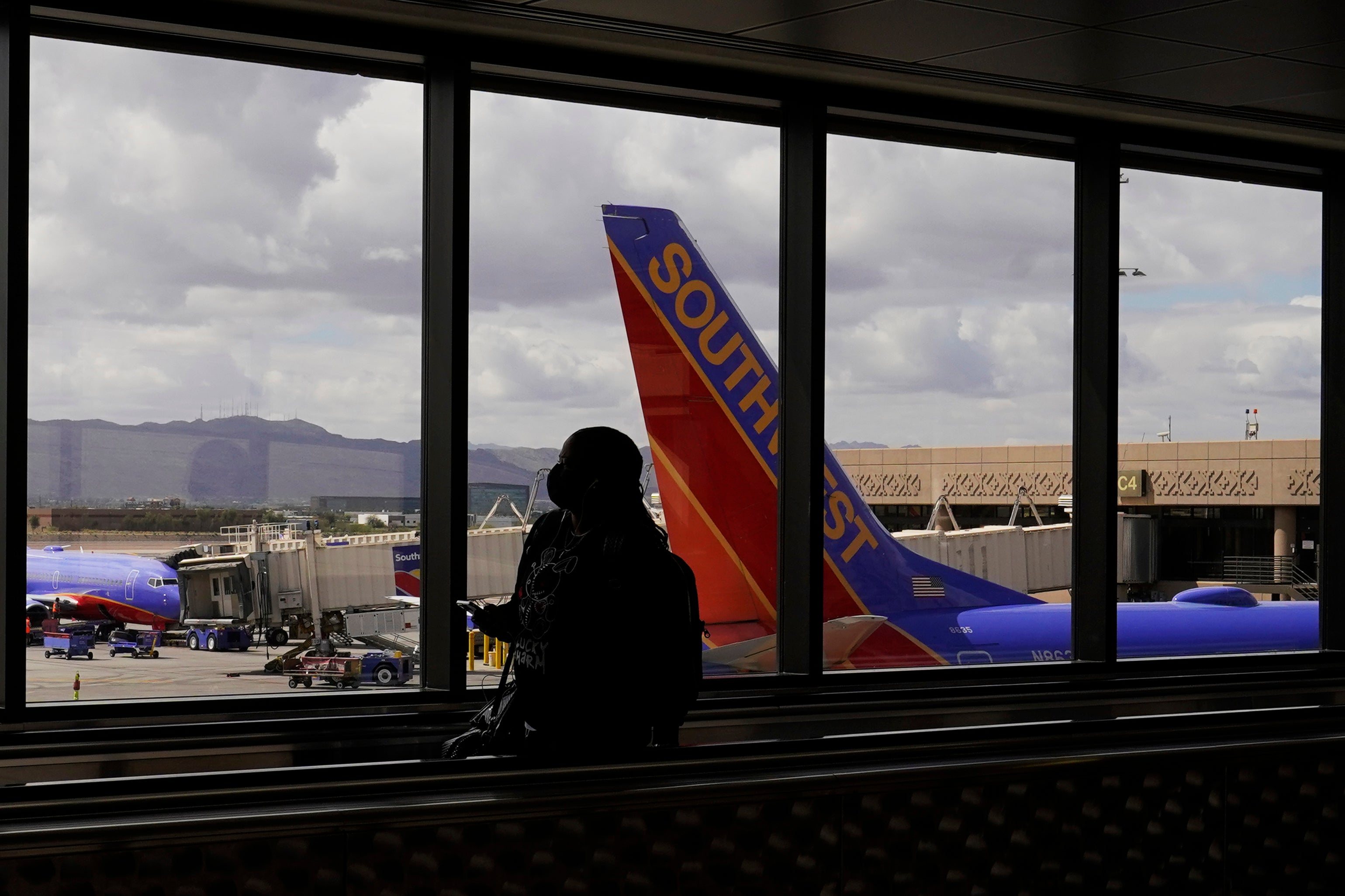EXPLAINER: 5G and air travel
The airline industry is raising the stakes in a showdown with AT&T and Verizon over plans to launch new 5G wireless service this week, warning that thousands of flights could be grounded or delayed if the rollout takes place near major airports

The airline industry is raising the stakes in a showdown with AT&T and Verizon over plans to launch new 5G wireless service this week, warning that thousands of flights could be grounded or delayed if the rollout takes place near major airports.
CEOs of the nation’s largest airlines say that interference from the wireless service on a key instrument on planes is worse than they originally thought.
AT&T and Verizon plan to activate their new 5G wireless service Wednesday after two previous delays from the original plan for an early December rollout.
The new high-speed 5G service uses a segment of the radio spectrum that is close to that used by altimeters, which are devices that measure the height of aircraft above the ground.
Here is a rundown of the issue from The Associated Press.
WHOSE SIDE IS THE GOVERNMENT ON?
Both.
The Federal Communications Commission, which runs the auctions of radio spectrum, determined that C-Band could be used safely in the vicinity of air traffic. The FCC in 2020 set a buffer between the 5G band and the spectrum that planes use to resolve any safety concerns.
But Buttigieg and FAA Administrator Stephen Dickson, whose agency is responsible for aviation safety, saw a potential problem. On Friday, they asked AT&T and Verizon to hold off activating C-Band 5G near an undetermined number of “priority airports” while the FAA conducted further study.
HOW DID AT&T AND VERIZON RESPOND?
They dismissed the concerns. The wireless industry trade group CTIA notes that about 40 countries have deployed the C-Band strand of 5G without reports of harmful interference with aviation equipment.
But AT&T CEO John Stankey and Verizon CEO Hans Vestberg did offer to reduce the power of their 5G networks near airports, as France has done.
“The laws of physics are the same in the United States and France,” Stankey and Vestberg said in a letter Sunday to Buttigieg and Dickson. “If U.S. airlines are permitted to operate flights every day in France, then the same operating conditions should allow them to do so in the United States.”
Although they took steps to soothe the federal officials, the telecoms are still bickering with airlines, which have canceled more than 10,000 U.S. flights since Christmas Eve because of bad weather and labor shortages caused by COVID-19.
“While the airline industry faces many challenges, 5G is not one of them,” Vestberg said in a company memo Tuesday.
HOW MANY PLANES DOES THIS AFFECT?
Under the agreement, the FAA will conduct a survey to find out. The FAA will allow planes with accurate, reliable altimeters to operate around high-power 5G. But planes with older altimeters will not be allowed to make landings under low-visibility conditions.
WHAT WILL HAPPEN IN THE NEXT TWO WEEKS?
The two-week postponement will give the FAA and the companies time to implement the agreement.
AT&T and Verizon will be allowed to launch C-Band service this month under already-granted FCC licenses. The airlines have until Friday to give the companies a list of up to 50 airports where they believe the power of C-Band service should be reduced through July 5.
Until July, the telecoms will talk to the FAA and airlines about potential long-term measures regarding 5G service near airports. However, under terms of the agreement with the FAA, AT&T and Verizon will have sole power to decide if any changes in service will be made.
“We felt that it was the right thing to do for the flying public, which includes our customers and all of us, to give the FAA a little time to work out its issues with the aviation community and therefore avoid further inconveniencing passengers with additional flight delays,” Vestberg said in his memo.
Nicholas Calio, president of the airline trade group, was more muted in his comments about the agreement, although he thanked federal officials for reaching the deal with AT&T and Verizon.
“Safety is and always will be the top priority of U.S. airlines. We will continue to work with all stakeholders to help ensure that new 5G service can coexist with aviation safely,” Calio said.
The FAA issued a brief statement about the two-week delay, saying it looks forward "to using the additional time and space to reduce flight disruptions associated with this 5G deployment.”
Bookmark popover
Removed from bookmarks